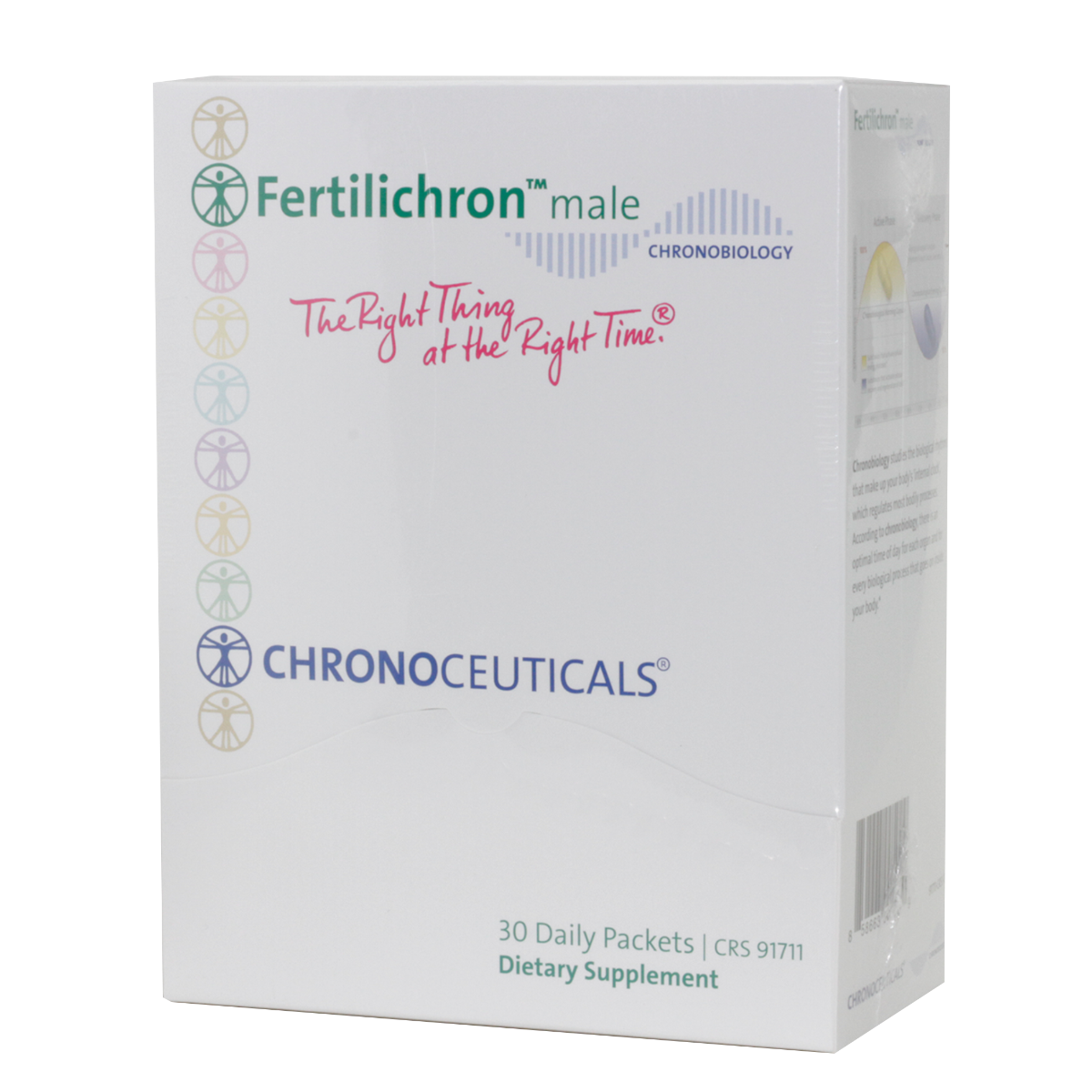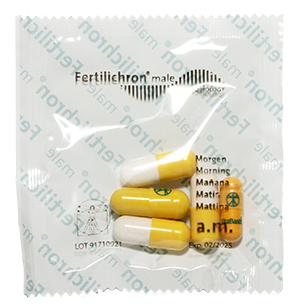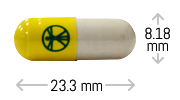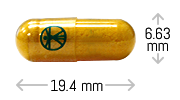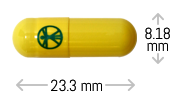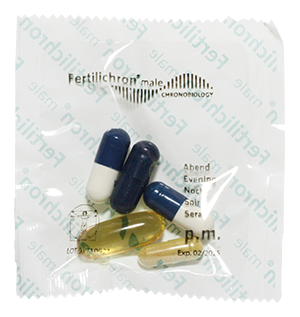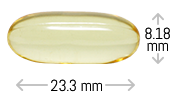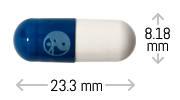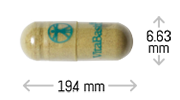Basics
Today, healthy fertility is no longer strictly a "woman's problem". The statistics don't lie: as many as 50 percent of all reproductive concerns can be attributed to the man, while another 20 percent involve both the man and the woman, or have no concrete cause. In fact, men over age 35 are twice as likely to have fertility concerns as are men under age 25. Despite this surprising fact, men are still very much in the dark about the lifestyle factors that promote healthy reproduction, not to mention the factors that may actually interfere with this vital process.
While in the past it was primarily women with tubal dysfunction who could be helped through in-vitro fertilization (IVF), today there are numerous natural approaches to optimizing fertility, each with its own place. In men, this is true because various facctors influenced by the biological age of the man determine sperm quality, as measured by sperm count (number), sperm motility (movement), and sperm morphology (form) as the sperm mature over a period of several months.
Based on these facts, a comprehensive, chronobiologically-based medicinal plant blend of vitamins, amino acids, enzymes, phytonutrients, and trace elements and minerals has been developed for supporting healthy male fertility and reproductive health in men who wish to start a family. The statistics are clear. Since 2001, the number of births has declined by about one tenth. Unfortunately, this is partially the result of health-related infertility. Subfertility, infertility and pregnancy disorders have become a huge problem for one in every three couples wishing to start a family.
A couple is considered infertile if conception does not occur after a year of regular sexual intercourse without contraception. Fertility also declines with increasing age.
Healthy sperm production, or spermatogenesis, is not the only cause of infertility that can be favorably influenced by nutritional supplements; often, the transport of sperm through the seminal passages is also a decisive factor in healthy fertility. Thus, the improvement of all prerequisites involved in successful fertilization becomes the order of the day.
The biological clock is ticking - not just for would-be mothers, but also for would-be fathers as they get older. The problems with aging are not limited to difficulties in attempting to procreate, as studies with titles such as “Paternal Age and the Risk of Diseases in the Child” indicate. The older a father is, the more divisions his individual stem cells have already undergone – 840 in a 50-year man compared to only 35 cell divisions in a 15-year-old boy. With each division, the probability of an unwanted mutation grows. Studies specifically show that decreasing semen quality may be associated with both OAT syndrome and azoospermia. The letters OAT, which refer to the sperm cells, stand for oligo (too few), astheno (with reduced mobility) and terato (with abnormal morphology). OAT is caused by pathological changes in the sperm. Azoospermia denotes the lack of sufficiently mobile sperm in the semen.
In the middle of the last century, young men of reproductive age typically averaged 100 million sperm per milliliter of semen. Today, men can be happy if they have 60 million. Increasingly, there are reports of otherwise healthy men between 20 and 30 years of age who have less than 20 million sperm per milliliter. Along with this decrease in quantity, poor quality is also common. Often, only around five to 15 percent of sperm are able to make their way to the egg.
For successful fertilization, the criteria influencing sperm transport are also of vital importance. The key requirement is the introduction of a sufficient amount of sperm into the uterus. The most common roadblock that stands in the way in this case stems from problems maintaining an erection, or impotence. In the course of his life, a healthy man produces an estimated 400 billion sperm cells, each taking about ten weeks to reach maturity. After they mature, the sperm then survive up to a month in the sperm depot. In a healthy male, between 120 and 600 million sperm cells are released at every successful ejaculation. An intelligently-designed nutritional supplement intended to support healthy male fertility aims to promote healthy sperm production, taking into account all major functions during the sperm’s development time.
To reiterate, if a couple is having trouble conceiving, it’s important to examine both the man and woman for possible causes. Compared to the tests a woman must go through, a laboratory analysis of a man’s semen is quick, painless and easy. A semen analysis of several ejaculates over a three-month period can determine whether and which functions of the sperm are impaired. A semen analysis is very extensive and measures not only the volume of semen and concentration of sperm, total sperm count, and sperm motility, but also the pH values and specific constituents in the semen such as acid, fructose, or metals. Particular attention is paid to sperm motility (the ability to move forward), desired sperm shape (morphology) - more than 20 percent should be unremarkable or normal sperm - and to whether at least three quarters of the sperm are viable.
Effects
There are two primary principles when it comes to male fertility: Since sperm cells require a lot of energy, they also promote oxidation – as a result, cell membranes and genetic components must be protected. Men with increased exposure to oxidative stress already have a propensity for a lower sperm count and more damaged sperm cells.
Phytonutrients that promote male fertility can help support the health of the sexual organs and sperm, while also boosting sex drive.
Since reduced fertility can have several causes in men, a wide variety of plant extracts, amino acids, vitamins, trace elements, and minerals should be specifically administered for the best possible effect. Here’s a brief overview of some of the active ingredients in Fertilichron® male:
Vitamin C is a water-soluble vitamin that is an indispensable factor in the production of many essential substances in the body. In aqueous body structures, it is the most important antioxidant, protecting tissue structures, cell membranes and cell components, and genetic information from oxidative damage. The sperm cell carries 50 percent of the DNA involved in conception, thus healthy seminal fluid naturally has a high level of vitamin C.
Vitamin E (as D-alpha tocopheryl acid succinate) is the most important fat-soluble antioxidant with a highly-protective effect on the fat constituents of cell membranes, as well as blood lipids. In this regard, it is particularly important for the health of the brain, the immune system and the reproductive system.
Natural carotenoids (beta-carotene, lutein, lycopene) are another class of fat-soluble nutrients with antioxidant qualities. They are especially helpful when it comes to neutralizing certain toxins from cigarette smoke and environmental chemicals. The body’s tissues communicate via gap junctions, and carotenoids help protect these vital information paths.
Vitamin A (as beta carotene) is the most important vitamin for growth and development, and can help support healthy skin. Getting enough vitamin A is important for those with skin problems like psoriasis and acne. In particular, vitamin A supports the health of the thymus gland, which regulates the immune system.
As co-enzymes, the various water-soluble substances that are part of the vitamin B complex -- B1 (thiamine), B2 (riboflavin), B6, B12, folic acid, pantothenic acid, biotin, and niacinamide – help maintain healthy cognition, support the health of the nervous system, and are vital when it comes to energy production, regeneration, and detoxification.
BioPQQ™ Pyrroloquinoline quinone disodium salt is an enzyme with B-vitamin properties that is found in many foods (spinach, green peppers, parsley, green tea, potatoes, natto). In 2003, the Journal of Nature classified BioPQQ™ as a new member of the vitamin B family, making it the first new vitamin discovered since 1948. BioPQQ™ acts directly in the mitochondria, the mini-power plants of all cells, including sperm cells. It also helps protect the brain against free radicals, while promoting the health of the nervous system and cellular health in general. Studies performed in mice and rats have shown that a diet lacking in pyrroloquinoline quinone disodium salt can result in problems involving reproduction, development and immune defense.
B vitamins play a key role in maintaining healthy hormonal balance, especially before and during conception. For example, vitamin B6 is required to produce normal levels of the hormone serotonin and other neurotransmitters. Folic acid is necessary for maintaining normal blood counts and promoting healthy cell growth in the male reproductive system.
Vitamin K1 is necessary for the formation of several coagulation factors in the liver. It also promotes healthy insulin response and bone health.
Vitamin D3 levels are positively associated with healthy sperm motility and cell structure. As recently as 2006, a special docking point for this vitamin was discovered on the surface of the sperm cell. A vitamin D deficiency is considered a serious factor in relation to sperm deterioration. In animal studies, the fertility of male rats who were vitamin D-deficient was decreased by 45 percent. In the laboratory, vitamin D was shown to support various activity patterns of human sperm cells, including their ability to attach to the egg.
Fertilichron® male also contains the mineral mix Coral Calcium, which provides dozens of trace minerals, especially calcium. Calcium, a highly-reactive alkaline earth metal, is helpful in ensuring the sperm cell’s ability to penetrate the outer layer of the egg. This is why calcium levels within the sperm increase shortly before penetration is attempted. Without this support -- for example if there is a shortage of calcium or a fault in the delivery system -- the sperm may lack the power to unite with the egg cell. Calcium is also necessary for the healthy activation of a special reproductive gene.
Coral Calcium is produced via the digestion of marine animals, which means it is organic and easily-absorbable. It also increases pH values, helping to protect against harmful acidosis.
Important minerals and trace elements such as magnesium, copper, zinc, iodine, iron, selenium, manganese, boron, potassium, chromium and molybdenum support the effectiveness of amino acids in the body. Zinc helps maintain a healthy sperm count, while selenium supports healthy sperm motility. Selenium deficiency is a common concern today, due to depleted arable soils.
L-carnitine supports the delivery of fatty acids into the mitochondria or mini-power plants of the sperm cell, where they are metabolized into energy. A high-fat diet or a lack of co-substances leads to a deficiency of this amino acid. L-carnitine was related to better results in endurance trials. Studies have also shown that this substance – derived from the meat of cattle, pigs and chickens, or from plants such as avocados and asparagus – supports healthy energy levels.
L-arginine supports the effects of L-carnitine while also supporting vascular health and healthy sexual capacity in men. L-arginine is a precursor to nitric oxide, the substance necessary for maintaining a healthy erection.
L-glutathione supports the liver’s detoxification functions. In a double-blind trial of infertile men, this highly-active antioxidant contributed significantly to healthy sperm count and motility.
The medicinal root maca has been used for centuries by the Inca kings to boost sexual energy and appetite. Macaplex® (Lepidium meyenii root extracts), the patented maca extract with a mixture of active substances, contains a wide variety of minerals, essential amino acids, and trace elements. This potent extract not only boosts libido, it also helps support healthy overall hormone balance; a prerequisite for the healthy maturation of a sufficient number of sperm. In addition, Macaplex® enhances physical and mental energy, while also supporting a healthy immune system.
Tribulus terrestris extract is a non-hormonal substance obtained from the medicinal plant Tribulus terrestris. Its active ingredients include water-soluble saponins, which frequently occur in plants. In the past 20 years, various studies in humans and animals have demonstrated that tribulus can increase the release of luteinizing hormone (LH) by as much as 72 percent, helping to increase levels of free, bioavailable testosterone in men. The proper level of free testosterone in men leads to healthy sperm production, among other things. Other positive effects of tribulus are that it supports a general feeling of wellbeing, and supports healthy cholesterol levels already within normal ranges.
Muira puama root extract is a tree in the sandalwood family with stone-like fruits, and is also known as "potency wood" in Brazil. Muira puama extract promotes healthy testosterone levels, while also boosting sexual desire.
Ginger root extract was originally valued for its relaxing effects. With its medicinal powers, the ginseng plant supports healthy testosterone levels and the normalizing effects of stress hormones from the adrenal glands. Ginger’s aphrodisiac qualities also help support healthy male fertility.
Damiana leaf extract is more than just an herbal aphrodisiac from South America. In addition to promoting a healthy appetite, it also increases energy levels, with benefits that extend beyond sexual health. Certain substances in damiana also support healthy mood and soothe anxiety, contributing to healthy overall mental wellbeing.
Resveratrol is a natural, highly-effective substance derived from red grapes. Resveratrol helps support cardiovascular health, as well as promoting healthy sperm count and male sexual health. Like L-glutathione, this polyphenol helps protect against oxidative stress, supporting the healthy levels of nitric oxide and healthy blood vessel dilation which are necessary for a healthy erection. In animal studies in diabetic rats, quality of erection, sexual interest and satisfaction were all increased with resveratrol. It was also shown to support healthy sperm count.
Coenzyme Q10 is a vital component of the cells’ power plants – the mitochondria – and offers a variety of beneficial effects. Above all, it helps maintain healthy blood flow, supporting the functioning of each respective organ. Coenzyme Q10 also promotes oxygen transport and healthy endurance in people with sedentary lifestyles. With regard to male sexual health, it has been demonstrated that this fat-soluble nutrient with antioxidant qualities helps support healthy sperm.
By protecting nerve cells from environmental toxins, choline supports the healthy functioning of neurotransmitters, as well as healthy cognitive function.
Sarsaparilla root extract (Smilax officinalis) helps maintain energy levels with plant-based saponins that also help maintain healthy hormonal balance. Traditionally, sarsaparilla has been used to support the immune system.
Omega-3 fatty acids are essential for the formation of nerve cells and are an important component of the cell walls. In addition, they help maintain healthy blood flow, contributing to maintaining healthy blood pressure already within normal ranges. They also help maintain healthy blood lipid levels already within normal ranges – extremely important for a healthy cardiovascular system. Among the most important essential fatty acids are DHA (docosahexaenoic acid) and EPA (eicosapentaenoic acid).
Citrus bioflavonoids possess antioxidant properties, and like the black pepper extract Bioperine®promote the absorption of vitamins, increasing the bioavailability of other active substances.
To achieve the goal of optimal-quality, healthy semen, one particularly-important factor to take into consideration is the chronobiological needs of the male body, which can be deliberately harmonized by administering certain active substances in the morning or in the evening. Additionally, when it comes to other supporting micronutrients, selecting the optimal dose as identified in scientific studies is a decisive factor.
Uses
Healthy fertility can be affected by a variety of factors. Aside from medical causes such as the after-effects of surgery, factors such as hormonal imbalance, environmental burdens, low-quality diet, stress, alcohol, nicotine and excessive medications are some of the leading culprits.
Approximately 200 chemicals adversely affect sperm quality, including industrially-produced substances, plasticizers in plastics, active ingredients in cosmetics, hormonal components in prescription drugs, and pesticides used in agriculture. They are hardly degradable in the environment, with up to 79 percent of food samples containing telltale traces.
Infections of the seminal ducts an also inhibit fertility, as can treatment with chemotherapy or radiation therapy.
Additionally, the longer the gap between instances of sexual activity, the older and less mobile the sperm contained in the semen.


